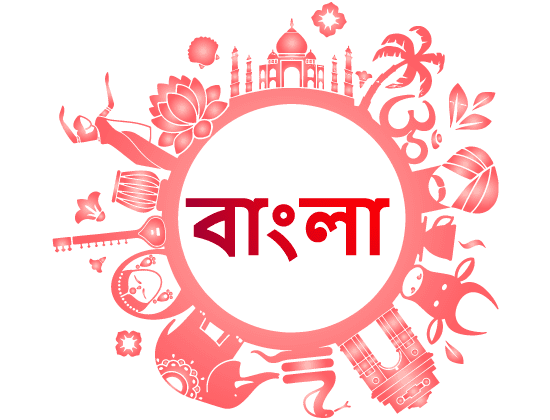From Albanian to Zulu 24/7


BENGALI TRANSLATION SERVICES
At worldLINK, we are committed to delivering precise, high-quality, and competitively priced Bengali translation services for a diverse range of clients—from global corporations to local businesses and individuals engaged in immigration, academic, or legal matters. Each translation is carefully tailored to meet specific client needs and accounts for regional variations in Bengali, including those spoken in Bangladesh and West Bengal, India. worldLINK ensures that every project is completed accurately and efficiently, helping clients bridge language and cultural divides with ease.
worldLINK BENGALI TRANSLATION SERVICES
BENGALI DOCUMENT TRANSLATION
BENGALI INTERPRETATION
BENGALI SOFTWARE AND WEBSITE LOCALIZATION

BENGALI LANGUAGE IN THE WORLD
With over 265 million speakers, Bengali is the official language of Bangladesh and the Indian state of West Bengal, as well as a primary language in regions like Assam and Tripura. It ranks among the most widely spoken languages in the world and boasts a rich literary history, including renowned works from poets like Rabindranath Tagore. Bengali is written in its unique script, which features distinct orthographic and phonetic characteristics integral to the Bengali-speaking culture. Consequently, Bengali has emerged as an important language for international business, cultural exchange, and diaspora communities across the globe.
CHALLENGES IN BENGALI TRANSLATION
Translating Bengali presents specific challenges due to its complex grammar system, distinct phonetics, and a script that can be difficult to adapt accurately to other languages. Additionally, there are regional variations in vocabulary and expressions between the Bengali spoken in Bangladesh and that in West Bengal, India. To ensure translations are both accurate and culturally meaningful, nuanced language usage, cultural sensitivity, and contextual adaptation are essential.
At worldLINK, we collaborate with experienced Bengali translators who understand the linguistic and cultural intricacies of the language. Our translators specialize in a variety of industries, ensuring that each translation is technically accurate and relevant to the intended audience.


worldLINK BENGALI INTERPRETERS
Our quality control process combines advanced technology with a client-centered approach, enabling us to deliver cost-effective, accurate, and timely solutions. Our three-phase process—project analysis, production, and post-production—ensures that each Bengali translation project meets the highest standards. Utilizing specialized software and an online project management system, worldLINK provides efficient services tailored to meet client demands. Our expert team is dedicated to delivering innovative and precise translations with a commitment to excellence.
INDUSTRIES IN BENGALI-SPEAKING REGIONS
The economies of Bengali-speaking regions are varied, with several key industries driving growth, trade, and development. Here are some major industries in Bangladesh and West Bengal:
Textiles and Apparel: The textile and garment industry is Bangladesh’s largest sector and a significant economic driver, making the country one of the world’s top garment exporters. West Bengal also has a strong textile tradition, particularly in silk and handloom products. This industry supports millions of jobs and plays a vital role in economic development.
Agriculture and Agribusiness: Agriculture is a cornerstone of the economy in Bangladesh and West Bengal, employing a significant portion of the population. Key products include rice, jute, tea, and fish, with rice and jute serving as primary exports. Agribusiness is evolving with investments in modern farming techniques and sustainable practices to increase yield and quality.
Information Technology (IT) and Software Development: The IT sector is growing rapidly in both Bangladesh and West Bengal, driven by a young, tech-savvy workforce and government initiatives promoting digital innovation. Key services include software development, IT-enabled services, and business process outsourcing (BPO), with companies catering to both domestic and international clients.
Manufacturing: Beyond textiles, Bangladesh and West Bengal have expanding manufacturing sectors, including the production of pharmaceuticals, electronics, and leather goods. This diversification supports economic growth and job creation, with significant foreign investment in recent years.
Energy: Energy production and infrastructure are critical to meeting the demands of growing economies in Bangladesh and West Bengal. Bangladesh, in particular, has invested in natural gas and renewable energy sources, such as solar power, to improve energy access. Energy development projects continue to be a focus for both regions to support industrial growth.
Shipbuilding and Maritime: Shipbuilding has become an emerging industry in Bangladesh, with the country building and exporting small to medium-sized ships. The maritime sector is essential for trade, as Bangladesh relies on its ports to support its large export industry.
Tourism and Hospitality: Tourism is growing in Bangladesh and West Bengal, with attractions ranging from natural beauty, such as the Sundarbans mangrove forest, to historic sites and cultural festivals. In West Bengal, Kolkata (formerly Calcutta) is a cultural hub, while Bangladesh has an emerging eco-tourism sector. Tourism supports local economies and provides employment in various services.
Banking and Financial Services: The banking and finance sector is essential to economic growth, with both Bangladesh and West Bengal focusing on increasing financial inclusion and expanding services such as microfinance, mobile banking, and investment services. Bangladesh is known for pioneering microfinance models that empower low-income communities.
Healthcare and Pharmaceuticals: Healthcare services and pharmaceutical production are expanding to meet the needs of growing populations. Bangladesh has a well-established pharmaceutical industry, exporting to many countries, while West Bengal has seen increased healthcare investment in recent years to improve accessibility and quality of care.
Education and Training: Education is a priority in both Bangladesh and West Bengal, with government initiatives aiming to improve literacy rates and provide vocational training. Education drives economic progress and helps prepare the workforce for employment in technology, finance, and manufacturing.
